Notebook
-
 Earth
Earth50 years ago, an Antarctic fossil pointed to Gondwanaland’s existence
Fifty years ago, fossils from Antarctica helped seal the deal that the southern continents were once connected in one, giant landmass called Gondwanaland.
-
 Health & Medicine
Health & Medicine50 years ago, scientists warned of marijuana’s effects on the unborn
In 1969, scientists warned about prenatal marijuana exposure. Researchers today are still untangling drug’s effect on fetuses.
-
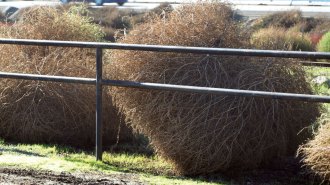 Plants
PlantsWhy tumbleweeds may be more science fiction than Old West
A tumbleweed is just a maternal plant corpse giving her living seeds a chance at a good life somewhere new.
By Susan Milius -
 Health & Medicine
Health & Medicine50 years ago, polio was still circulating in the United States
The world has never been closer to eradicating polio, but the disease could come roaring back where vaccination is spotty.
-
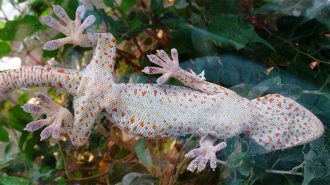 Life
Life50 years ago, scientists thought they knew why geckos had sticky feet
50 years ago, scientists thought gecko feet had suction cups that allowed the animals to stick to surfaces. Today we know tiny hairs do the job.
By Kyle Plantz -
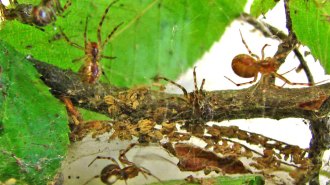 Animals
AnimalsWhy one biologist chases hurricanes to study spider evolution
For more rigorous spider data, Jonathan Pruitt rushes into the paths of hurricanes.
By Susan Milius -
 Earth
EarthClimate misinformation may be thriving on YouTube, a social scientist warns
Analyzing 200 climate-related videos on YouTube shows that a majority challenge widely accepted views about climate change and climate engineering.
By Sujata Gupta -
 Neuroscience
NeurosciencePlants don’t have feelings and aren’t conscious, a biologist argues
The rise of the field of “plant neurobiology” has this scientist and his colleagues pushing back.
-
 Space
SpaceA proposed space telescope would use Earth’s atmosphere as a lens
One astronomer has a bold solution to the high cost of building big telescopes.
-
 Physics
Physics50 years ago, Fermilab turned to bubbles
The National Accelerator Laboratory, now called Fermilab, used to have a bubble chamber to study particles. Today, most bubble chambers have gone flat.
-
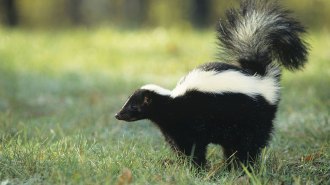 Chemistry
ChemistryA fungus makes a chemical that neutralizes the stench of skunk spray
A compound produced by fungi reacts with skunk spray to form residues that aren’t offensive to the nose and can be more easily washed away.
-
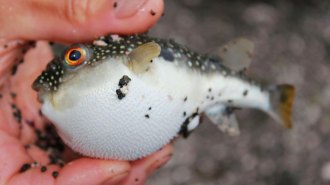 Animals
AnimalsThere’s more to pufferfish than that goofy spiked balloon
Three odd things about pufferfishes: how they mate, how they bite and what’s up with no fish scales?
By Susan Milius